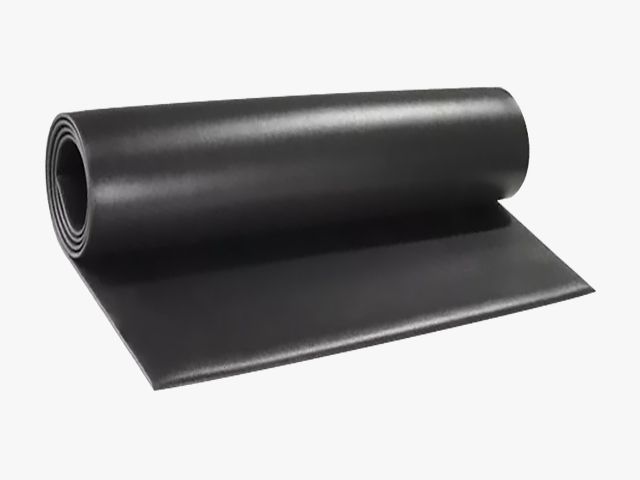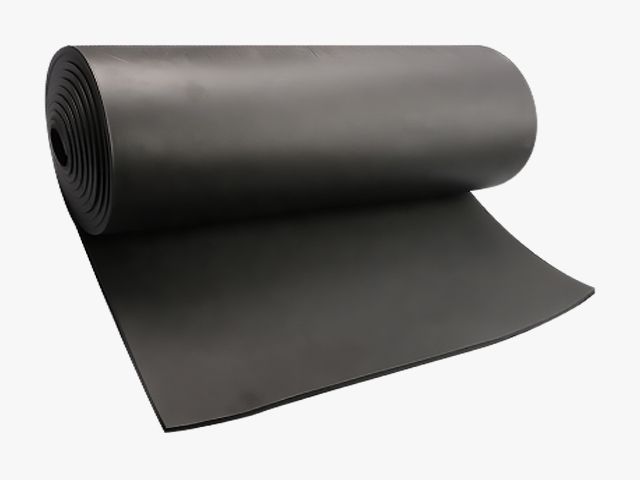Performance characteristics of silicone foam gaskets and whether the foam is toxic?
The ability of the material of the silicone foam gasket to resist the pressing of hard blocks into its surface is called hardness. Silicone foam has a Shore hardness range of 10 to 80, and customers can choose the hardness they need to better perform their special functions. Mixing different proportions of polyurethane materials, fillers and modifiers can achieve a variety of intermediate hardness values. Similarly, heating and drying time and temperature can also change the hardness without easily destroying other physical characteristics.

The tensile strength of a silicone foam gasket refers to the force required in each category to cause a piece of rubber material to tear. The tensile strength range of thermally vulcanized solid organic chemical silica gel is close to the middle of 4.0-12.5 CPa. The tensile strength range of fluorosilicone rubber is close to the middle of 8.7-12.1MPa. The tensile strength range of silica gel is close to the middle of 3.6-11.0MPa.
The tear strength of a silicone foam gasket refers to the resistance to the expansion of a notch or scribe line when energy is released on a notched sample. Even if it is placed under very high torsional stress after being cut, the thermally vulcanized solid silica gel can not be torn. The tear strength range of thermally vulcanized solid silica gel is close to the middle of 9-55kN/m. The tear strength range of fluorosilicone rubber is close to the middle of 17.5-46.4kN/m. The tear strength range of silicone is close to the middle of 11.5-52kN/m.
The elongation of silicone foam gaskets generally refers to the "limit crack extension" or the percentage increase relative to the original length when the sample is cracked. The general elongation range of thermally vulcanized solid silica gel is between 90 and 1120%. The general elongation of fluorosilicone rubber is between 159 and 699%. The general elongation of silica gel is between 220 and 900%. Different production and processing methods and the choice of sealing curing agent can greatly change its elongation. The elongation of silica gel is very related to temperature.
Are common silicone foam gaskets toxic?
Silica gel foam gasket is a kind of highly active adsorbent silica gel, which is an amorphous substance, and its chemical formula is mSiO2nH2O. It is insoluble in water and any solvent, non-toxic, tasteless, chemically stable, and does not react with any substances except strong alkali and hydrofluoric acid. Different types of silica gel have different microporous structures due to their different preparation methods. The chemical composition and physical structure of silica gel make it difficult to replace many similar materials, such as high adsorption performance, good thermal stability, stable chemical properties, and high mechanical strength.
Silica gel has a strong adsorption capacity for dry skin. If silicone gets into your eyes, rinse with plenty of water and seek medical attention as soon as possible. Silica is the main component of silica, with good chemical stability and non-toxicity. After water is adsorbed by silica gel, it can be regenerated by exposure, drying and air drying. Blue silica gel contains a small amount of cobalt chloride, which is poisonous. Avoid contact with food and inhalation. If poisoning occurs, consult a doctor immediately for treatment.
According to the size of its pore size, silicon is divided into: macroporous silica gel, coarse-pored silica gel, B-type silica gel, and fine-pored silica gel. Due to the difference in pore structure, their adsorption performance has its own characteristics. Under the condition of high relative humidity, the adsorption capacity of coarse-pored silica gel is higher than that of coarse-pored silica gel, while under the condition of low relative humidity, the adsorption capacity of fine-pored silica gel is higher than that of fine-pored silica gel. The capacity is higher than that of coarse-pored silica gel. The B-type silica gel has a pore structure between the coarse and fine-pored silica gel, and its adsorption capacity is also between the coarse and fine pores. Silicone foam gaskets are generally used as catalyst carriers, matting agents, toothpaste abrasives, etc. Therefore, different die-cut silicone gasket products should be selected according to different uses.
 |
 |



